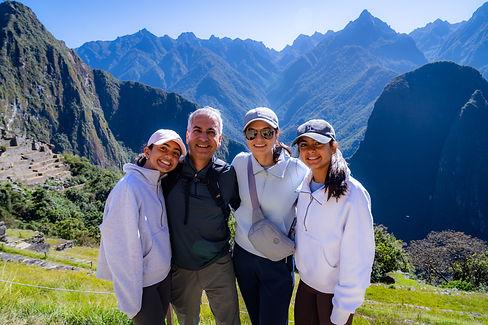
Masala Memoirs
Southern Roots, Spice in the Soul
Pooja Dua was born in Auburn, Alabama—a city known more for football and southern comfort cuisine than for samosas or sabzi. But within her family home, the warmth of Indian cooking simmered quietly alongside American staples. That duality—of place and palate—would come to define how she mothered, cooked, and created memories for her children.
Pregnancy Cravings and Quiet Support
With two children now aged 16 and 13, Pooja looks back at her pregnancies with clarity and humor. “With my first, I craved guacamole constantly. The second? Nothing.” Her pregnancies weren’t easy, so she wasn’t working at the time—but her husband was a steady support, as were her in-laws. Her parents lived a couple of hours away and couldn't be there daily, but love travelled in other ways. “It was mostly just the two of us—managing, learning, figuring it out.”

India vs. America: A Tale of Two Parenting Worlds
Though Pooja was born and raised in the U.S., she’s deeply aware of the contrasts between raising children here and what it might have looked like in India.
“In India, extended families share responsibilities—there’s always someone around. In the U.S., it’s more isolated. Parents are stretched thin.”
She also notes that Indian food is cooked more from scratch, and that in India, life feels a bit more paced, whereas in the U.S., “everyone’s rushing, eating on the go, and bedtimes aren’t sacred.” There’s a calm predictability in Indian households that she sometimes misses in American routines.
Baby Food, Google, and Gut Instinct
When her children were small, Pooja prepared meals that reflected both her roots and her realities—a mix of Indian and American food, always organic when possible.
She turned to pediatricians for guidance, but also leaned on her family and her own common sense. “If ever there was a conflict, I usually sided with the doctor—but it was rare. The traditional and the professional advice didn’t clash too much.”
Clean Eating, the Traditional Way
A self-confessed label-reader, Pooja is meticulous about what goes into her family’s food. “Traditional Indian food is clean. Made from scratch. No preservatives. That’s the kind of food I trust.” She keeps an eye on her kids’ nutrition, not out of paranoia, but out of care. “I want them to know what balanced eating feels like. I want their bodies to recognize nourishment.”
Palates That Wander Together
The Dua household is a melting pot of cravings. Her husband loves Indian food. Her daughters—and she herself—lean toward sushi, Mediterranean, and Mexican. There’s no generational gap when it comes to taste, just a difference in spice level or mood.
They eat out about once a week, and Pooja is open to it. “It’s important to me that they try different cuisines, learn what they like, explore. Food is culture.”

A Taste of Balance
Protein, Pragmatism, and No Food Fights
Pooja does most of the cooking, but she's made it a point to train her kids early. Once they were old enough to handle a stove, she taught them breakfast basics—eggs, toast, even pancakes.
“I want them to know that they don’t have to rely on processed food. But I do worry—when they grow up, will they have the time or energy to cook from scratch? Or will convenience win?”
The family isn’t vegetarian, though the decision wasn’t made lightly. “I wanted them to get enough protein for their growth. Meat made that easier in smaller portions.” It’s not a source of debate or identity crisis in the household—it’s just a part of their nutritional choices.
Pooja’s story, like so many quiet maternal narratives, is filled with thoughtful decisions made in the moment, and beliefs shaped by both tradition and science. It’s not loud or flashy, but it’s deeply intentional—a reminder that nourishment isn’t just about what’s on the plate, but the love that makes it.